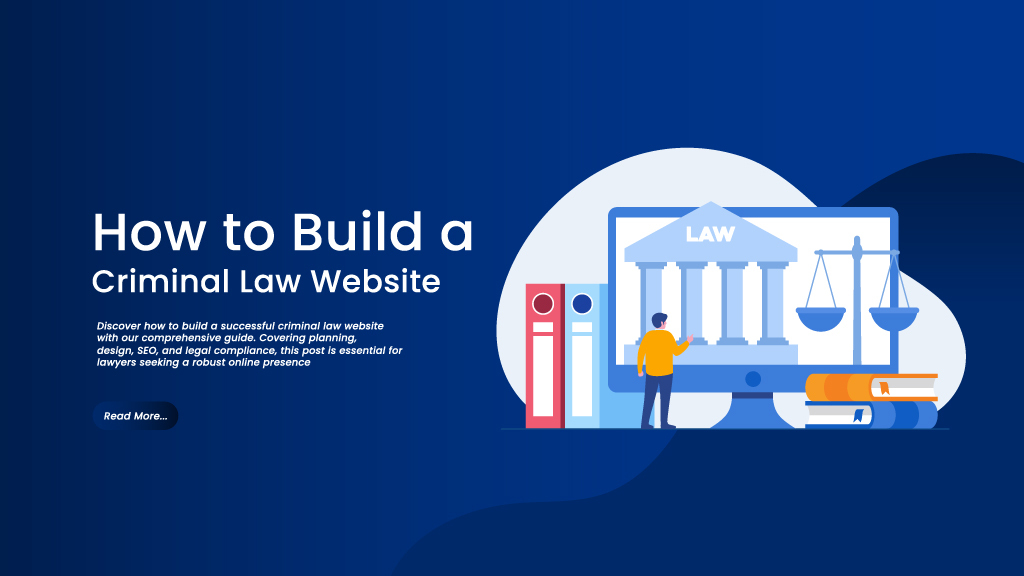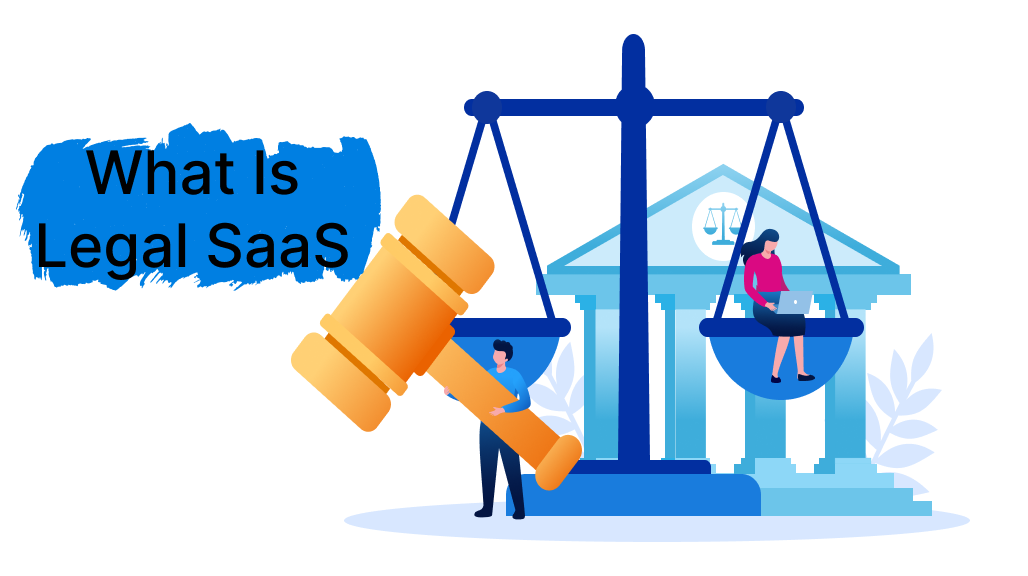In the digital age, a website is more than just a digital business card for criminal law professionals; it’s a vital tool for establishing credibility, attracting clients, and disseminating crucial information. This guide is meticulously crafted to help legal practitioners create a robust online presence, particularly in the criminal law domain. Through this journey, we will delve into the oceanic abyss of how to build a felon law website that serves as a professional portfolio and becomes a beacon of trust and expertise in the field.
Understanding the necessity of an integer footprint in today’s competitive landscape is material for any criminal lawyer. Your site is often the first point of contact between you and potential clients or colleagues. It needs to convey professionalism, authority, and the unique attributes of your practice. This guide, focusing on our primary keyword, how to build a criminal law website, will provide you with all the knowledge and tools necessary to create an effective and engaging online presence.
Understanding the Essentials of a Criminal Law Website
A criminal law website is a cornerstone in digitally representing a legal professional’s expertise and services. It’s not just a platform; it’s a reflection of your law practice’s ethos and values. To effectively build a criminal law website, it’s crucial to comprehend its core components and its role.
What is a Criminal Law Website?
At its core, a criminal law website is a technical digital platform that provides comprehensive examination information about a legal practitioner’s services, expertise, and accomplishments in criminal law. It should encapsulate the essence of your legal practice, showcasing your skills and areas of expertise, such as defense strategies, noteworthy cases, or whatever specialized effectual services you offer.
Key Components of a Successful Criminal Law Website
To ensure your website effectively represents your criminal law practice, include the following elements:
- Professional Design: Reflecting trustworthiness and expertise.
- Quality Content: Including detailed descriptions of your services, biographies, and case studies.
- Client Testimonials: To build credibility.
- Contact Information: Easily accessible and visible.
- Legal Blog: Providing valuable insights and updates in criminal law.
Understanding these essentials is the foundation of a successful criminal law website. It’s about creating a platform that informs and instills confidence in potential clients about your proficiency in the legal field.
Planning Your Website
Effective planning is the first step in building a website that looks good and performs well. This involves setting clear goals, understanding your audience, choosing the right platform, and ensuring that your criminal law site resonates with your target and meets your business objectives.
Setting Goals for Your Criminal Law Website
Begin by defining what you want to achieve with your website. Goals may include:
- Attracting New Clients: Highlighting your expertise to appeal to potential clients.
- Establishing Authority: Positioning yourself as a thought leader in criminal law.
- Providing Resources: Offering valuable information and insights into criminal law matters.
- Enhancing Online Presence: Improving your visibility and accessibility online.
Understanding Your Target Audience
Your website should cater to the specific needs and interests of your audience, which may include:
- Potential Clients: Focusing on how you can assist them with their legal issues.
- Other Lawyers: Demonstrating your expertise for referrals or collaborations.
- Law Students: Offering educational content and career insights.
Choosing the Right Website Platform
Selecting a platform for your website is crucial. Consider:
- Ease of Use: Platforms like WordPress are user-friendly and widely used.
- Customization Options: Ensuring the platform allows for the customization needed for a law website.
- SEO Friendliness: A platform that supports SEO optimization is essential.
By carefully planning your criminal law website, you set a solid foundation for its success. This planning phase is critical in ensuring that your website looks professional and effectively communicates your expertise and services to your intended audience.
Designing Your Website

The design of your criminal law website plays a pivotal role in how your professional image is perceived online. A well-designed website should be visually appealing and functional, instilling confidence and trust in your potential clients.
Professional and Trustworthy Design
Your website’s design should reflect the seriousness and professionalism inherent to criminal law. Consider these elements:
- Color Scheme: Choose colors that convey trust and authority, such as navy blue, deep greens, or muted gold tones.
- Layout: Ensure the layout is clean, organized, and easy to navigate.
- Typography: Choose fonts that are professional and easy to read, avoiding overly decorative styles.
Best Design Practices for Law Websites
- Consistency: Maintain a consistent theme throughout your site to build brand identity.
- Imagery: Use high-quality images that reflect your practice, such as images of your office or team.
- Responsiveness: Ensure your site is mobile-responsive, as many users access websites on their phones.
Incorporating Brand Identity
Your website should be an extension of your law firm’s brand identity:
- Logo: Display your firm’s logo prominently.
- Brand Message: Your brand’s message should be clear and consistent throughout the site.
- Tone and Voice: The tone of your content should align with your brand’s image.
Your website’s design is your chance to make a strong first impression. It should convey the professionalism, expertise, and reliability that clients expect from a criminal law professional.
SEO Optimization for a Criminal Law Website
Search Engine Optimization (SEO) is critical for ensuring your criminal law website is visible and ranks well on search engine results pages. Proper SEO practices increase your site’s visibility and attract more targeted traffic, which can lead to increased client inquiries and conversions.
Incorporating Keywords Naturally
- Main and Secondary Keywords: Integrate your main keyword, “how to build a criminal law website,” and related terms throughout your site’s content, including headings, meta descriptions, and body text.
- Keyword Placement: Strategically place keywords in the first and last paragraphs, headings, and subheadings for optimal SEO impact.
On-Page SEO
- Title Tags: Ensure each page has a unique and descriptive title tag, including your main keyword.
- Meta Descriptions: Write compelling meta descriptions (155-160 characters) that include your primary keyword and summarize the page’s content.
- Image Optimization: Use descriptive alt text for images, incorporating relevant keywords where appropriate.
Off-Page SEO
- Backlinks: Acquire quality backlinks from reputable law-related websites to enhance your site’s authority.
- Local SEO: Optimize for local search terms if you target clients in specific geographic areas.
Content and SEO
- Regular Updates: Keep your site’s content fresh and updated, as search engines favor regularly updated websites.
- Quality Content: Prioritize creating high-quality, informative content over simply stuffing your site with keywords.
Technical SEO
- Mobile Responsiveness: Ensure your site is mobile-friendly, as many users access websites through mobile devices.
- Page Speed: Optimize your website’s load speed, as slow-loading sites negatively impact user experience and search rankings.
Effective SEO optimization is a game-changer for your criminal law website. It helps you reach your target audience more effectively and positions your website as a valuable resource in the criminal law field.
Mobile Optimization and Accessibility
In today’s digital landscape, ensuring your criminal law website is mobile-optimized and accessible to all users is not just a bonus; it’s a necessity. With significant internet traffic climaxing from mobile devices, your website moldiness provides an optimal user experience across all platforms.
The Importance of Mobile-Friendly Design
- User Experience: A mobile-optimized website offers a better viewing experience, making it easier for users to navigate and find information.
- SEO Impact: Search engines like Google prioritize mobile-friendly websites in their rankings.
- Broader Reach: A mobile-responsive design ensures that your website is accessible to a larger audience, regardless of their device.
Key Elements of Mobile Optimization
- Responsive Design: Ensure your website automatically adjusts to fit any device’s screen size.
- Touch-Friendly Navigation: Buttons and links should be easy to tap on a touch screen.
- Optimized Images and Videos: Ensure media files load quickly and display correctly on mobile devices.
Ensuring Website Accessibility
- ADA Compliance: Your website should meet the Americans with Disabilities Act (ADA) standards and be accessible to users with disabilities.
- Readable Fonts: Use fonts that are easy to read on small screens.
- Contrast and Color: Ensure sufficient contrast between text and background colors for readability.
Accessibility Features to Consider
- Screen Reader Compatibility: Ensure your website is navigable and readable by screen readers.
- Keyboard Navigation: Allow users to navigate your site using a keyboard, which is essential for those who cannot use a mouse.
- Alt Text for Images: Provide descriptive alt text for images, aiding visually impaired users.
Mobile optimization and accessibility are not just about reaching a wider audience; they’re about inclusivity and providing a seamless experience for all users. By focusing on these aspects, you ensure that your criminal law website is effective, respectful, and accommodating to all visitors.
Monitoring and Updating Your Website
Regularly monitoring and updating your criminal law website is crucial for maintaining its effectiveness and relevance. This involves analyzing performance metrics, staying updated with legal trends, and ensuring the website reflects the latest in your practice and the field of criminal law.
Website Analytics
- Traffic Analysis: Use tools like Google Analytics to monitor website traffic, user behavior, and engagement patterns.
- Performance Metrics: Track key performance indicators, such as page load times, bounce, and conversion rates, to understand user experience.
- Feedback: Consider user feedback and comments for insights into how your website is being received.
Importance of Regular Updates
- Content Freshness: Regularly update your blog and core content to keep the information current and relevant.
- SEO Impact: Search engines favor websites with fresh, updated content, impacting your search rankings positively.
- Legal Updates: Ensure all legal information and resources on your site are up-to-date with current laws and practices.
Maintaining Website Security
- Regular Backups: Regularly back up your website to prevent data loss in case of technical issues.
- Security Updates: Stay vigilant about security updates and patches to protect your site from vulnerabilities.
Responding to Technological Advancements
- Adopting New Features: Keep abreast of new web technologies and features that could enhance your website’s functionality and user experience.
- Mobile Trends: Continuously optimize for mobile device trends to ensure a seamless user experience on all platforms.
Monitoring and updating your criminal law website is an ongoing process that ensures the site remains a dynamic, up-to-date resource for your clients and a strong representation of your legal expertise. Regular maintenance and updates are key to sustaining the website’s performance and relevance in the ever-evolving digital landscape.
Conclusion
Building and maintaining a criminal law website is a multifaceted endeavor that requires careful planning, effective design, content strategy, SEO optimization, and ongoing maintenance. This comprehensive guide has outlined the essential steps and considerations for creating a website that showcases your expertise in criminal law and connects meaningfully with your audience.









